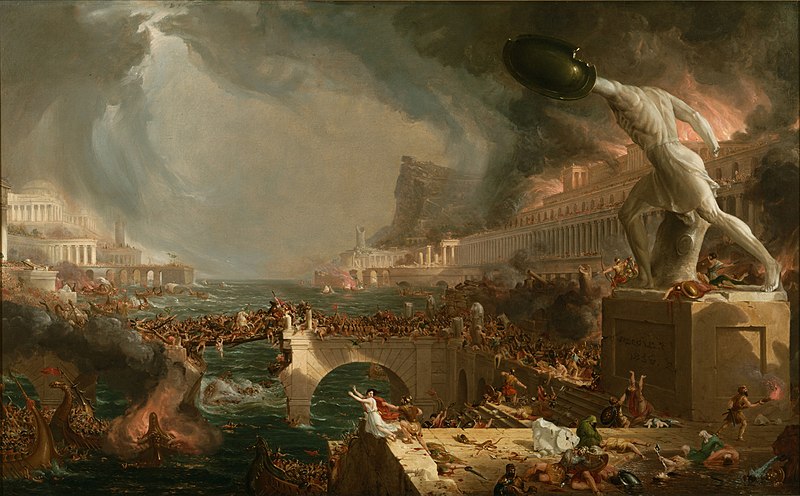In the psychology of the west in the 21st century, two characteristics predominate.
First, this is the age of democracy.
Second, this is the age of narcissism.
And the coexistence of both does not seem to be a coincidence.
As far as I can tell, the actual value of holding regular elections is to flatter the conceit of the individual voters so that they feel important and don't revolt. Look at these powerful people, groveling to you, promising you things! They're in a VFW Hall somewhere in Ohio, eating terrible rubber chicken, nodding and pretending to care about your concerns. Some day they'll be president, but right now they're kissing your @$$. Admittedly, all the voting you did in the past somehow didn't manage to solve your problems, but surely this time will be different.
The slogan for all this nonsense is 'your opinion matters'. This comes in minor variants like 'your voice matters' or 'your vote matters', but the 'opinion' version is the favored generic variant. This is because 'opinion' requires the least possible effort on your part - you don't have to yell, like with a voice, or heaven forbid actually
do something like waste an hour on some Tuesday in November. Your thoughts alone are so valuable that the powerful cannot wait to turn to you in order to hear them.
This is an obvious lie, easily identified as such.
The first clue is this exact phrase is frequently used by spam marketers trying to get you to click on online polls. It's almost like they've figured out that people are susceptible to empty flattery about the importance of their political opinions, and use this to infect their computers with malware. Hey, if they'll turn up when the government pulls this nonsense, why not us too? You can hardly blame them for thinking this, not least because they tend to be right.
But more importantly, the idea that your opinion matters violates the poker rule of relative naivete. The old advice in poker was that at every table, there is a mark - a rube or fool who doesn't know how to play the game, and that people will target to make money off. Play a few hands at a table. If after that time you haven't figured out who the mark is, the mark is you, and you should probably leave.
So in the game of politics, do you know who the mark is? Do you know who is being conned in the political process? Doubt not that professional politicians know who they think is being conned. The rich donors know who they think is being conned. The professional political advisers and lobbyists know who they think is being conned. Admittedly, they may not agree with respect to the position of
each other - like in any poker game, overconfidence is rife, and most people think they're the best player at the table.
But they also all agree that one of the people clearly being conned is
you, John Q. Citizen voter and taxpayer. And be honest - you don't have a clear idea of who is being conned, do you Citizen? Should this concern you? I feel it should.
I do like asking ardent demotists if their voice matters. They usually laugh, knowing the inherent ridiculousness of the question, but are reluctant to explicitly disclaim it.
Not only does your voice not matter individually, your voices barely even matter collectively. The permanent establishment of the civil service, courts, media and universities will continue on their merry way regardless. This is why you can elect Obama and find out, puzzlingly, that eight years later Guantanamo is still open and Americans are still dying in Iraq and Afghanistan. And this is in foreign policy, where the president apparently has the most freedom of action.
But in case the appeal to the importance of your ideas fails, there is a second plank of appeal to the importance of voting - that it is your civic duty. And people who may scorn the first appeal nonetheless seem susceptible to the second. To wit, voting shows how noble and civic-minded you are. Do you love your society? Then waste an hour of your life pressing a button for whichever of the two fools on stage you happen to detest less. Surely you are
too responsible to not vote, citizen?
It's narcissism all the way down.
When I started reading more
reactionary literature and being convinced by the arguments therein, it was oddly relieving to find out that my opinion does not matter. One no longer needs to feel personally involved or aggrieved by any of the nonsense of the political process. I feel no need to waste any more hours of this short and rapidly passing life worrying about exactly what Donald Trump did or didn't say in the most recent news cycle.
That's for the marks who feel that their vote matters.
This may sound like a call to passivism, that nothing at all matters, but it is not.
Your
actions may very well matter. This is particularly true if enough of you act together.
But pressing the button for Kang or Kodos every four years seems unlikely to be one such action.




